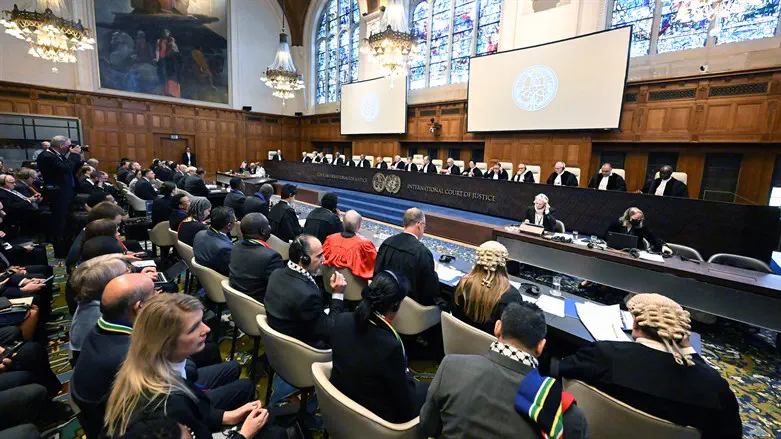
Judge Nawaf Salam, Lebanon's representative to the International Court of Justice at The Hague, was elected today (Tuesday) to a three-year term as President of the ICJ in a decision which could have significant ramifications for South Africa's attempt to charge the State of Israel with genocide at The Hague.
The Lebanese government considers itself in a state of war with Israel and is dominated by the Hezbollah terrorist organization, and Iranian proxy group that seeks the complete destruction of Israel.
Meanwhile, Judge Julia Sebutinde, the Ugandan representative to the ICJ, was elected as the court's Vice President.
Last month, the ICJ handed down its first judgement in the case brought by South Africa against Israel.
The court refused South Africa's request to issue an order mandating that Israel end the military operation against Hamas undertaken following the massacre of over 1,200 people on October 7. However, it refused to throw out the case as Israel and many Western nations sought and issued multiple orders for Israel to take steps to prevent genocide in Gaza and to submit a report later this month on its efforts to implement all provisional measures.
Judge Sebutinde was the only member of the 17-judge panel to vote against all measures voted upon against Israel. In her dissent, she wrote that “South Africa has not demonstrated, even on a prima facie basis, that the acts allegedly committed by Israel and of which the Applicant complains, were committed with the necessary genocidal intent, and that as a result, they are capable of falling within the scope of the Genocide Convention.”
Notably, Sebutinde did not vote in line with the instructions of the Ugandan government, which stated that her vote and opinion did not reflect its own positions. The votes of most judges at the ICJ can be predicted by the policies and positions of the governments they represent.
